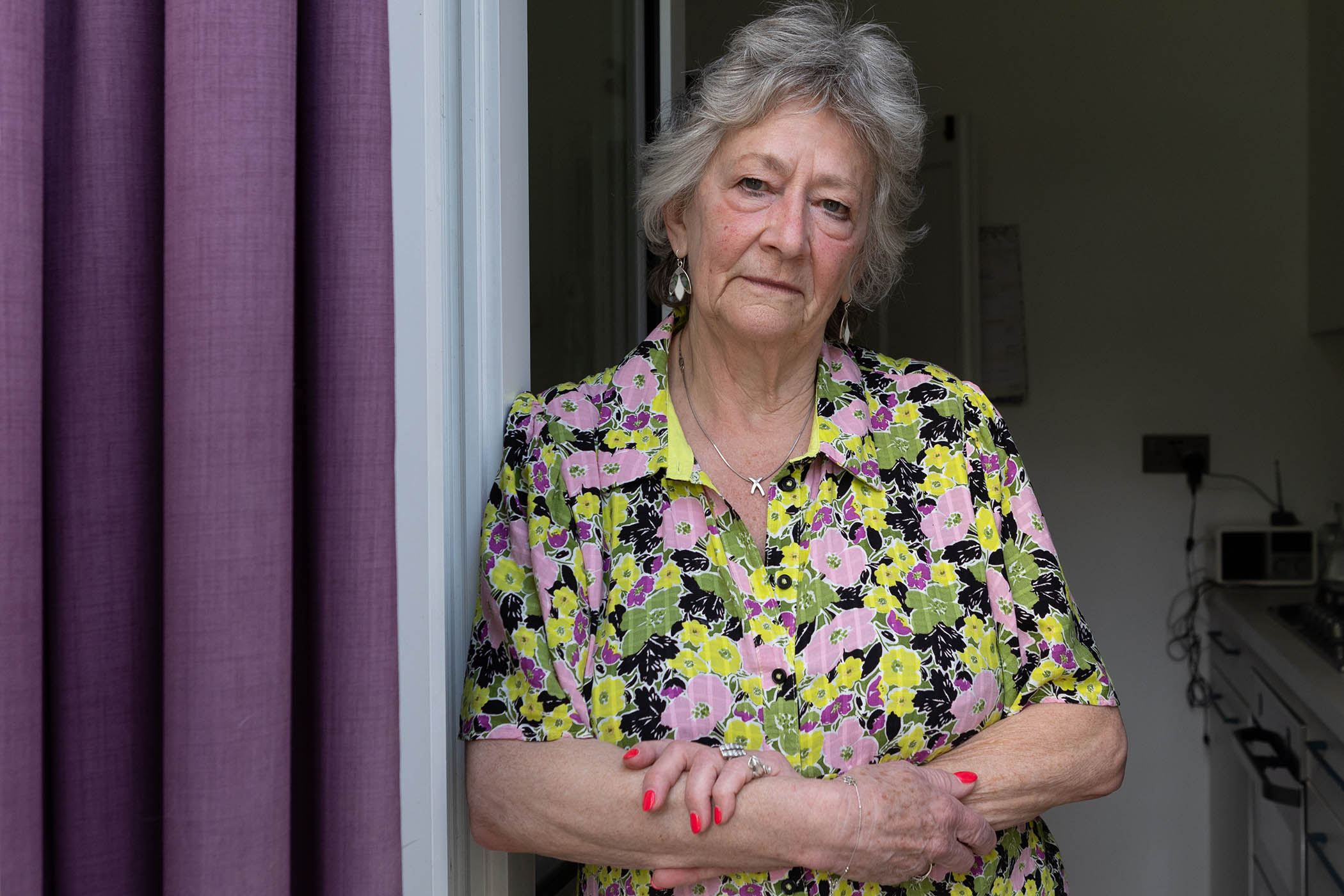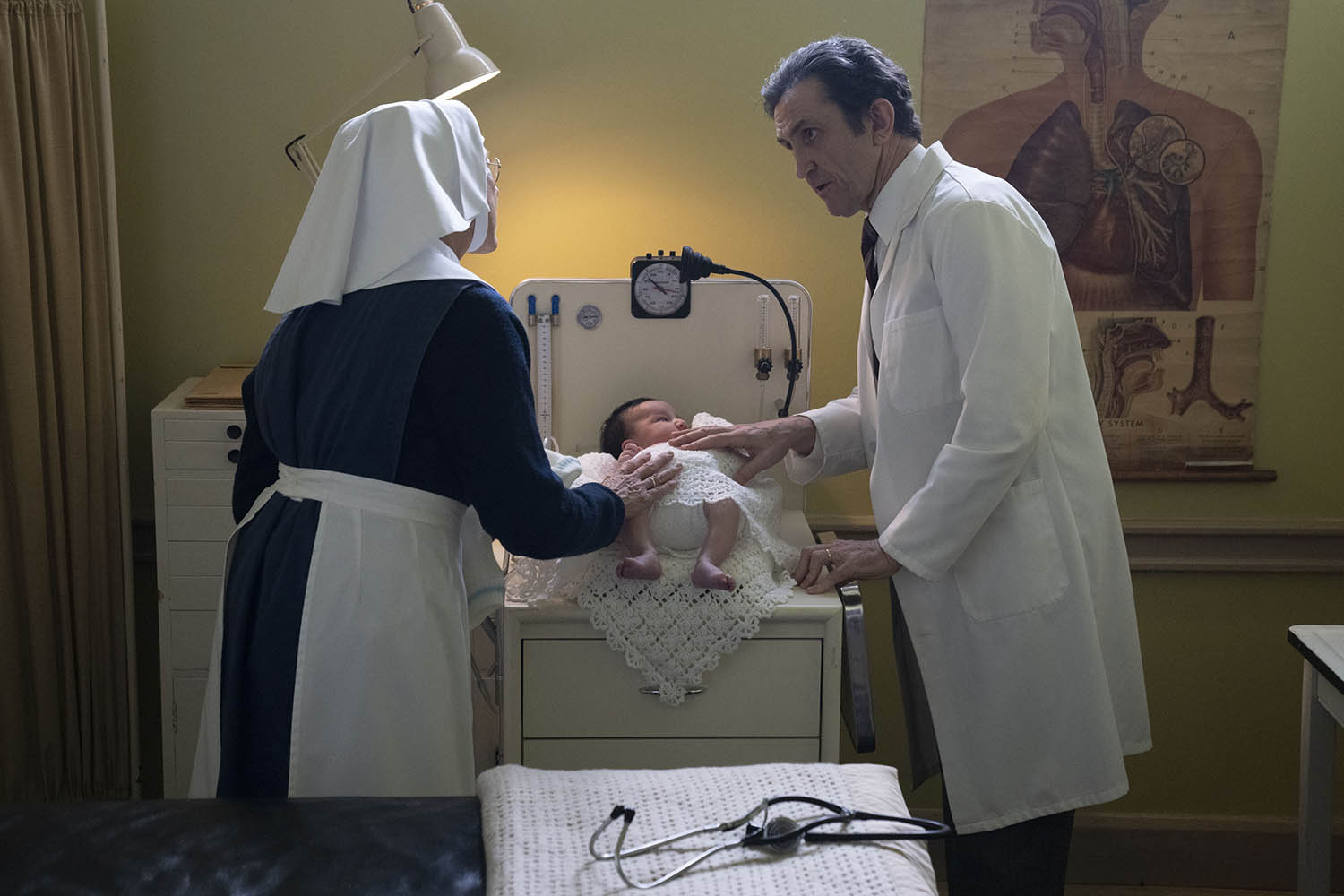Illustration Zoë Barker
Taj arrived in Britain in 2018 hiding in the wheel arch of a bus. He was 16 years old and had travelled alone from his home in Darfur, where he had been tortured. He fled Sudan to Libya, and then through Italy to France. In France he was homeless and hungry, and spent time living on the streets. When he saw a chance to travel to Britain, he seized it.
“I knew the bus had a British number plate. All I had was a small bottle of water and one apple – I nearly fell off three times,” he says. The journey was terrifying, although the bus kept him warm in the freezing temperatures. “On the third day the bus was still for a long time, and I thought, I can’t take this any longer. I need to get off, I’m going to die anyway.” He left the wheel arch – and found that the bus was on a ship, moving across the Channel. “I had made it,” he remembers.
When the boat docked in England it was dark. In the confusion he was discovered by border police, and he was questioned for a long time about his age. “I didn’t know the language”, he says. “All I knew how to say was yes.” After a conversation he barely followed, he saw the police had written on their forms that he was 28. “Once I understood that, I was very worried.”
He was sent to an adult immigration detention centre where he spent the night. But the Home Office social workers who carried out his formal age assessment the next morning accepted he was 16 – in fact, they initially suspected he was much younger and had to be convinced otherwise – and he was taken to a care home in Bedford while his asylum claim was considered.
Taj was one of a growing number of unaccompanied asylum-seeking children (UASC) who arrive in Britain alone and end up in the care system – a cohort that now makes up almost one in 10 “looked after” children. In 2014 there were 2,050 UASC in council care; by 2024, as the number of displaced people around the world has risen, the figure was 7,380.
In the course of reporting this story, The Observer has spoken with five people with direct personal experience of navigating the asylum system as an unaccompanied child, as well as officials, academics, charities, and care workers. What has emerged is a picture of twin crises: a slow, legally complex and politically charged asylum process and an overwhelmed care system. Caught between them a group of vulnerable young people – at risk of being treated as adults, with potentially dangerous consequences.

Foster carer Tina Fenner at home in Sevenoaks, Kent. 28/8/25
The house Taj was sent to in Bedford was run by the local authority, and shared with five other “looked after” teens – mostly young Brits. He liked them, but it was a volatile living situation. Fights would often break out, which he scrupulously avoided in case it damaged his asylum claim. “I didn’t want any trouble,” he says.
Taj found he did not fully understand the asylum system he was in – and neither, it seemed, did many of the people looking after him. “There were 10, 20 social workers” who came in and out of the care home on shifts. It was difficult, he says, to work out the rules. “I wanted to go to school, but they said no, I needed to wait”.
Asylum seekers aged between 16 and 18 are entitled to education, but access can vary by postcode, and schools may baulk at admitting them as they do not feel able to meet their complex needs. A 2022 study found some 21% of lone asylum seeking children were missing school, compared with just 2% of other kids in the care system. “If I had been able to go to school I would be in a very different place now,” he says.
Newsletters
Choose the newsletters you want to receive
View more
For information about how The Observer protects your data, read our Privacy Policy
He stayed in the care home until he was 18, during which time he was granted refugee status. He now has settled status – which means he can live in Britain permanently and is able to work. When he looks back at his time in care, he thinks it could have been smoother. “I would have liked to be in foster care,” he says. “But that is very hard to find.”
The UK is in the middle of a “fostering crisis”: the numbers of households approved for care dropped from 45,370 in 2021 to 42,615 in 2024, most likely because the cost of living crisis has made it less affordable.
A lot of [foster carers] are scared of the unknown – worried they won’t be able to communicate… They don’t realise how rewarding it can be
A lot of [foster carers] are scared of the unknown – worried they won’t be able to communicate… They don’t realise how rewarding it can be
Tina Fenner, foster carer
Asylum seeking children are some of the hardest to place. The majority of these lone children – 89% – are between 16 and 18, as the perils of the passage to Britain tend to rule out younger kids. Some 96 % are boys, in part because girls are less likely to attempt these long journeys, where they would be in danger of sexual violence. It is also because boys have a greater chance of fitting Britain’s strict asylum rules, says Marianne Lagrue, policy manager at Coram, a legal charity that specialises in helping child asylum seekers.
These rules require asylum seekers to demonstrate a “well-founded” fear of persecution based on their individual circumstances. Lagrue says boys are more likely to fit this definition, as they may be pressured into conscription as a child soldier, for example, or involved in gang warfare.
Tina Fenner, who lives in Sevenoaks in Kent, has fostered “about 50” asylum-seeking children in the last 20 years, all while bringing up her own daughter, and running a chocolate shop. “A lot of [foster carers] are scared of the unknown – worried they won’t be able to communicate with sanctuary-seeking children,” she says. “They don’t realise how rewarding it can be.”
The effect of foster care is visible in the data. If they are at school, unaccompanied refugees who live in care homes perform at around three years behind their non migrant peers – but for those in foster care that gap narrows to a year and a half. A clinical review by Oxford University found refugee kids who are fostered have significantly better mental health.
“Living with foster parents also helps them to integrate,” says Lagrue. “It can be hard to acclimatise if you are not with a family – who can teach you everything from bus timetables onwards.”
Wali was smuggled into Britain from Afghanistan in 2016 aged 14, suffering from PTSD after experiencing conflict. He was fostered by “five or six” successive families, some of whom he felt “didn’t like the job” and were unapproachable, and others with whom he had a “really positive” time and with whom he still stays in touch. Still, he says that peers who ended up in local authority housing had it worse. They made easy pickings for local gangs – who enticed them with offers of money or companionship. “They are the most vulnerable people because they never think they belong anywhere and they can’t earn,” he says.
In 2023 it emerged that 464 unaccompanied asylum-seeking children had gone missing from hotels. The Home Office placed 6,257 of them in hotel accommodation between July 2021 and January 2024, initially in response to the pandemic. Some were as young as 12.
Local police interviews with children who were subsequently found revealed that some had run away to join family members who were in Britain, but others had been trafficked or exploited.
According to the Home Office, 78 of the missing 464 children have still not been found. A Home Office spokesperson said: “We take children going missing extremely seriously. We continue to regularly review our systems for updates if this takes place, sharing relevant information with local police forces investigating the matter.”
Last year, the high court ruled that the “routine” use of hotels for these children was unlawful, and the Home Office says it stopped using them in this way in January 2024. But according to a BBC report published earlier this year, unaccompanied migrant children continue to disappear from local authority care: between 2023 and 2024 in Kent some 153 went missing for periods of time – the longest of these periods was over a year. Kent county council said that any child going missing was a “serious concern” and the council made “every effort to prevent this from happening”.

Nurse Rishan
Even those in foster care – with someone like Tina Fenner looking out for them – can struggle within the system. Fenner feels it is often too crude to cope with the nuances of these children’s situations.
“I was looking after one Albanian girl who had been trafficked into the country for sex,” she says. “We specifically asked for a female interpreter for her asylum interview at the Home Office, but we were given a male one. Of course she wouldn’t go into detail of why she was seeking asylum”.
It was only at Fenner’s insistence that a female interpreter was provided at a second interview. “If I don’t help these children through the system they can end up in absolute limbo,” she says.
Research published this summer by the London School of Economics, found “almost all” young asylum seekers lacked a trusted adult to help them through it. “One young person I worked with didn’t even understand what asylum meant”, says Dr IIona Pinter, an LSE researcher and one of the authors. Many didn’t know they were entitled to support from the Refugee Council, for example, or charities such as Banardo’s, and had to track down immigration solicitors alone.
The lack of specialised support makes life hard for everyone, says Anthony Okereke, leader of Greenwich council. “If we don’t get it right, not only does the child suffer but we as local authorities have to sort out the mess.” Councils are obliged to support those who have been in care as children – or for more than 13 weeks before their 18th birthday – while challenges to asylum claims are ongoing. This responsibility can continue until these young people are 25.
Last year councils spent £286m on unaccompanied young refugees, more than three times the bill of a decade ago – mostly on housing. Despite government efforts to distribute these young people more evenly around the country, certain boroughs bear the brunt of the cost, particularly southern councils such as Kent, which has an obligation to look after lone children when they arrive in small boats in Dover. In Wokingham, one in every four children in care are refugees, and in Hampshire it is one in five.
Meanwhile, the Home Office increasingly disbelieves young people who arrive unaccompanied claiming to be under 18. Age disputes last grabbed headlines back in 2016, during a period that the right wing feared adult migrants were passing themselves off as children. “Tell us the tooth!” bellowed the Sun, demanding dental checks, thought to give more accurate age assessments.
The adults can tell they are children and they are treated differently – adults take their food or fight with them
The adults can tell they are children and they are treated differently – adults take their food or fight with them
Rivka Shaw, policy officer, Greater Manchester Immigration Aid Unit
But now a growing number of children are being incorrectly placed in hotels or hostels with adults. There were 12 times more age disputes in 2023 than in 2011, outpacing the rate of increase in asylum-seeking children. Research from 2024, which looked at a sample of these disputes, found that in more than half the cases children were incorrectly assessed as older than they were and placed in adult accommodation at “significant” risk.
“They are treated with the most appalling hostility at the border with officials laughing at them, and shouting,” says Rivka Shaw, policy officer at Greater Manchester Immigration Aid Unit. Once in a hostel, “the adults can tell they are children and they are treated differently – adults take their food or fight with them,” says Shaw.
It can also put even more strain on local authorities once these children are distributed around the country. “If a child is assigned to an adult hotel in Manchester, then they are that council’s problem” – meaning the council must suddenly find the money to care for the newly discovered minor, without warning.
What is the solution? Pinter’s report concludes it lies in helping young people through the asylum process with greater speed, and giving them access to an adult they can rely on. It recommends the government provides funding to local councils for legal guardians for these children, as well as free legal advice. Okereke agrees that there needs to be more “joined up thinking” between councils and the government.
But the current political temperature around asylum seekers is unlikely to help progress. Lagrue has been campaigning for children to be allowed to bring over family members to support them – something they are not currently permitted to do – which could potentially take strain off the care system. But she fears the government’s decision to temporarily suspend the family reunion scheme, announced this month, will scupper this.
Meanwhile, anger over the use of hotels for adult asylum seekers could put those children wrongly assessed as adults at even greater risk. The shadow justice minister, Robert Jenrick, has called for people to be held in “rudimentary prisons” while their claims are assessed, while No 10 is considering placing them in buildings on industrial sites or on Ministry of Defence land.
Before 2018, the use of “holding centres” like these was more common. “The first boy that got me into fostering children was an Iraqi boy who was in a holding centre, assessed as being over 16,” says Fenner. “He was actually 13, and one of the older guys had tried to rape him.”
The plan to return to holding centres worries her. “It could be very dangerous for young people,” says Fenner. “The atmosphere in those places is highly charged – a lot of the people who are in there are not their usual selves.”
Meanwhile, charities fear that things are only getting worse for these often traumatised young people – moved from lodging to lodging, or left in local authority housing with very little to do but fret over their asylum status. A year or two in limbo is hard for an adult, but much harder for a teenager, who could suffer from this setback for decades.
“I was fortunate. There was genuine emotion towards my situation from my foster parents – they were super helpful to me,” says Wali. “The British system is not easy. It feels like it doesn’t matter if you are underage.”
Some, like Taj and Wali, will, after long and difficult journeys, ultimately make a happy and productive life for themselves in Britain. Many will not be so lucky.
Profiles
Tina Fenner
Tina Fenner heard about the struggles faced by lone asylum-seeking children from a social worker after she adopted her daughter Cecilia. No sooner had she taken in her first foster child, a 13-year-old from Iraq, than social workers called her up with her second, a boy from Afghanistan.
A similar phone call has followed every couple of months for the past 20 years – often with very little information about the children involved – and she has always taken them in. Fenner paused fostering only once, during the year Celia was doing her GCSEs.
“My second foster child now owns a very successful fish and chip shop”, she says. “Many are happily married now”. They all stay in touch.
Mateo*
Mateo arrived in Croydon in 2018, aged 16, having travelled alone from Albania. He was put in foster care in a large house with many other asylum-seeking children, but found his foster parents were largely uninterested in talking to him.
“I mostly stayed in my room,” he says. When he turned 17 he was moved to a shared care home, but says a gang would hang around the house, targeting him. It took him “three or four years” to understand the asylum system he was in, and he felt unsupported by social workers. His asylum application needed a medical report, a trafficking expert, and a statement, but he says he wasn’t properly informed about this.
The Home Office refused his application. He is still contesting it.
Rishan
Rishan fled Sudan in 2014, aged 16. Her family had entered Sudan from Eritrea illegally and were at risk of being tortured or killed if they were returned.
She was transported to Britain by people smugglers and the journey took a year, after which she was placed with a “loving” foster family who helped her learn English and with whom she is still in touch. She is now an NHS nurse and helps young refugees in her spare time.
“Things have changed, fewer young people are able to get foster care,” she says. “They are sitting around in hotels, with no access to education or work, nothing to do. We see them isolating and developing mental health issues.”
Ahmed
Ahmed came to Britain in 2018, aged 16, fleeing Sudan. His uncle was involved in politics and the volatile political environment had put the family at risk.
He travelled in the back of a lorry, dodging people traffickers who he says put refugees to work in carwashes or farms. Once in the UK, Ahmed was sent to the City of Westminster, and placed in a hostel for teens in the care system, which also housed young people who had recently left jail. Many of the residents of the building were selling drugs and starting fights.
“I was very scared,” he remembers. It took a year and a half to get his asylum status. He was able to go to college, and is now working.
Portrait by Andy Hall for The Observer



